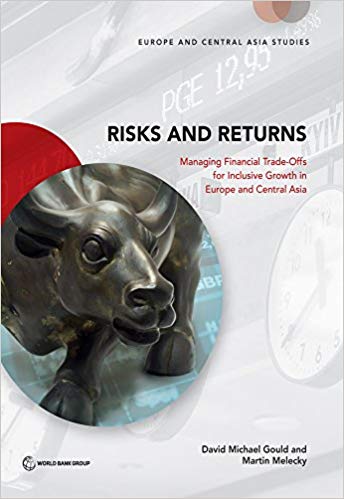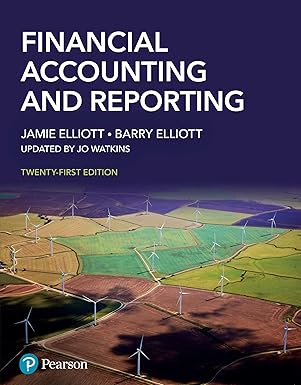During the 1990s, Emerging Europe and Central Asia (ECA) chose a model of rapid financial development emphasizing bank credit expansion often funded by foreign capital. Although boosting financial inclusion of firms and households, the model was accompanied by lower efficiency and increased financial vulnerability. After two waves of crises, in the late 1990s and after 2008, ECA’s banking systems again face major stress. The crises and stresses have eroded trust in banks and job creation in credit-dependent firms. ECA’s shallow and illiquid capital markets offer no additional support. Stagnating income growth, particularly of middle- to lower-income earners, has led to increasing dissatisfaction with low productivity growth and limited opportunities. This frustration provides the impetus for reshaping financial policies. A healthy and balanced financial sector could strengthen structural adjustment in ECA’s eastern, oil-dependent economies and innovation in its western countries.
Risks and Returns: Managing Financial Trade-Offs for Inclusive Growth in Europe and Central Asia argues for reaching beyond increasing access to credit. ECA countries must build integrated financial systems, enabling prudent financial inclusion in a region significantly lagging in the use of saving products. Striking the right balance across all dimensions of financial development (stability, efficiency, inclusion, and overall depth) is crucial for achieving and sustaining inclusive growth. Redesigning financial policy involves addressing trade-offs often overlooked in the past. Too much credit and imprudent financial inclusion have led to banking crises. Overly stringent regulation to foster financial stability has hindered inclusion and efficiency gains. Both shortfalls have had negative consequences for shared prosperity.
Risks and Returns discusses tools and approaches to help policy makers achieve balanced financial development.
چکیده فارسی
در طول دهه 1990، اروپای نوظهور و آسیای مرکزی (ECA) مدلی از توسعه سریع مالی را انتخاب کرد که بر گسترش اعتبار بانکی که اغلب توسط سرمایه خارجی تامین می شد، تاکید داشت. اگرچه این مدل باعث افزایش شمول مالی شرکت ها و خانوارها شد، اما با کارایی پایین تر و افزایش آسیب پذیری مالی همراه بود. پس از دو موج بحران، در اواخر دهه 1990 و پس از سال 2008، سیستمهای بانکی ECA دوباره با استرس شدید مواجه شدند. بحران ها و استرس ها اعتماد به بانک ها و ایجاد شغل در شرکت های وابسته به اعتبار را از بین برده است. بازارهای سرمایه کم عمق و غیر نقدشونده ECA هیچ حمایت اضافی ارائه نمی دهند. رشد رکودی درآمد، بهویژه افراد با درآمد متوسط تا پایینتر، منجر به افزایش نارضایتی از رشد بهرهوری پایین و فرصتهای محدود شده است. این ناامیدی انگیزه ای برای تغییر شکل سیاست های مالی ایجاد می کند. یک بخش مالی سالم و متعادل می تواند تعدیل ساختاری را در اقتصادهای شرقی و وابسته به نفت ECA و نوآوری در کشورهای غربی آن تقویت کند.
ریسک ها و بازده ها: مدیریت مبادلات مالی برای رشد فراگیر در اروپا و آسیای مرکزی برای دستیابی به فراتر از افزایش دسترسی به اعتبار بحث می کند. کشورهای اتحادیه اروپا باید سیستمهای مالی یکپارچه بسازند تا در منطقهای که به طور قابل توجهی در استفاده از محصولات پسانداز عقب مانده است، مشارکت مالی محتاطانه را ممکن کند. ایجاد تعادل مناسب در همه ابعاد توسعه مالی (ثبات، کارایی، شمول و عمق کلی) برای دستیابی و حفظ رشد فراگیر ضروری است. بازطراحی سیاست مالی شامل پرداختن به مبادلاتی است که اغلب در گذشته نادیده گرفته می شدند. اعتبار بیش از حد و شمول مالی غیر محتاطانه منجر به بحران های بانکی شده است. مقررات بیش از حد سختگیرانه برای تقویت ثبات مالی مانع از شمولیت و افزایش بهره وری شده است. هر دو کمبود پیامدهای منفی برای رفاه مشترک داشته اند.
ریسکها و بازده ابزارها و رویکردهایی را برای کمک به سیاستگذاران برای دستیابی به توسعه مالی متوازن مورد بحث قرار میدهد.
ادامه ...
بستن ...
Ebook details:
عنوان: Risks and Returns: Managing Financial Trade-Offs for Inclusive Growth in Europe and Central Asia (Europe and Central Asia Studies)
نویسنده: David Michael Gould, Martin Melecky
ناشر: World Bank Publications (January 27, 2017)
زبان: English
شابک: 1464809674, 978-1464809675
حجم: 7 Mb
فرمت: True Pdf
ادامه ...
بستن ...










